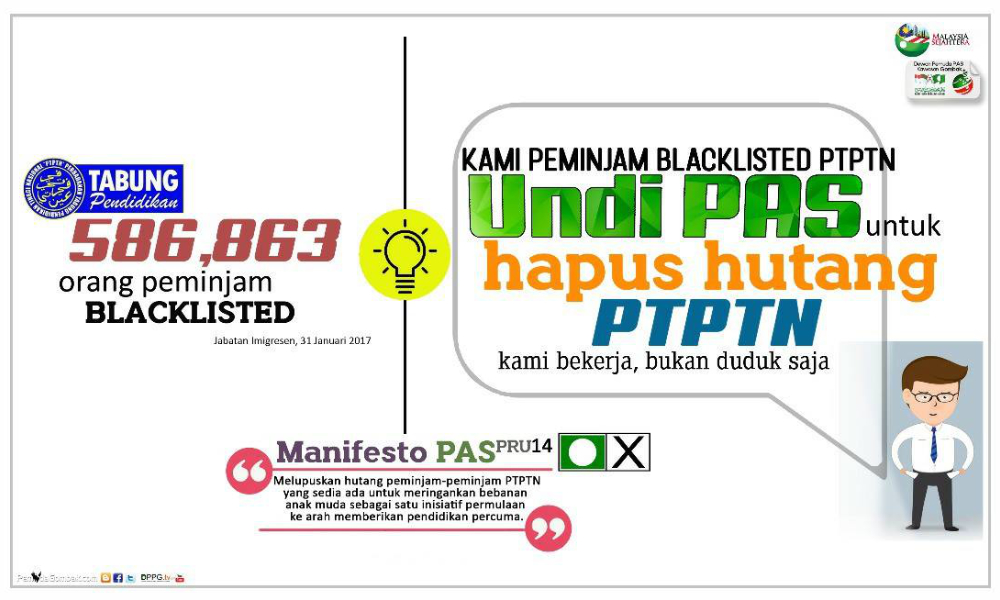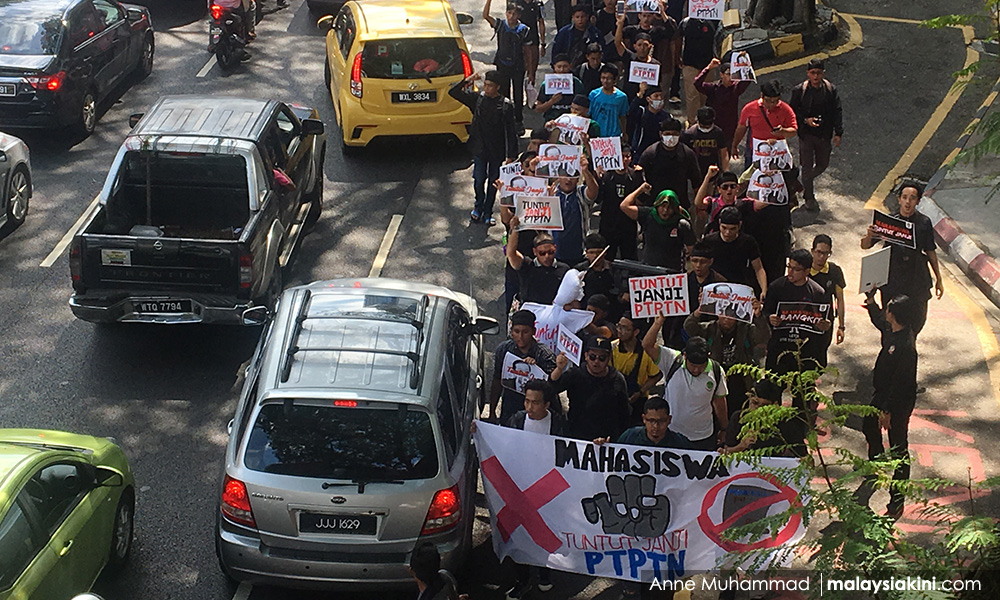The statistics are frightening. Consider these:
As of the end of last year, the National Higher Education Fund Corporation (PTPTN) had approved 3,951,404 loans totalling RM71 billion.
Over 2.7 million loans, amounting to RM32 billion, remain unpaid.
About 420,000 borrowers have yet to make even one payment.
To add insult to injury, nearly half of the borrowers who have yet to make repayments are recipients of the Sumbangan Tunai Rahmah (STR) cash aid.
These statistics were not picked out of thin air. They were provided during Question Time in Parliament.
Who’s to blame?
It says plenty and reflects the mindset and thinking of the younger generation’s lack of values.
Some see the loan as rezeki (sustenance) - fortune without any moral or ethical consideration of how that fortune or opportunity came to be.
Others see them as a form of entitlement, while others treat the loans as gifts that do not require repayment.
But then, many believed the promises made during elections that they would not have to repay.

Deputy Higher Education Minister Mustapha Sakmud provided some hints in Parliament in October.
“I believe this PTPTN issue has been dragged on for quite some time and all parties from both sides of the political divide have (at one point) included this matter in their manifesto.
“But given the current situation, it would be difficult for us to abolish (loan repayments), especially with the government shouldering a vast (financial) commitment,” he said.
In 2012, when Anwar Ibrahim was the opposition leader, had called on borrowers not to make payments.
Sin Chew Daily quoted Anwar as saying that Pakatan Rakyat would abolish PTPTN loans within a year if elections were held and if Pakatan succeeded in capturing Putrajaya.

Such irresponsible statements only encouraged a show of disobedience to laws.
But in October this year, having discovered that non-repayment would be a disaster, Anwar changed his stance, saying repayment through the Income Contingent Loan (ICL) option is a practical move that would not burden borrowers.
Besides, various discount schemes have been in operation - which no other lending institutions, such as banks and financial institutions, offer - and they did not work either.
Nothing will change when defaulters are treated with velvet gloves and as untouchable, especially when government leaders undertake to abolish repayments.
The entire leadership needs to be educated about paying up after borrowing, which should filter down to the masses. But no, the loan scheme is a political hot potato, and the issue will be in limbo until election time.
A link to corruption
But there is another downside to this issue and it relates to the attitude of the young borrowers, many of whom are in the government and high places.
MACC deputy chief commissioner Azmi Kamaruzaman said corruption among the country’s youth is alarming.

He said statistics collated since 2000 showed that 2,337 Malaysians between the ages of 16 and 40 had been arrested for corruption offences.
The offences centred on offering and receiving bribes. Some also made false claims or abused their positions and were involved in money laundering.
He added that some 1,073 people had been hauled to court, of whom 575 have since been convicted.
“This data shows that corruption among youth is serious, and this needs to be curbed to prevent such practices from being normalised,” Bernama quoted him as saying.
He said youths must observe developed countries that have addressed issues of integrity.
“They will move ahead compared to us, who have not been able to resolve (issues of integrity) for years.”

Is there a correlation between young defaulting borrowers and those involved in corruption?
How will recalcitrant youths feel when they are told not to repay loans? How can they change when they think accepting money is manna from heaven or a form of entitlement?
For the sake of the future, the issue must be sorted out before we sink deeper. But will it happen?
Politicians have already started planning and talking about the next election scheduled for 2027, and the PTPTN loans will feature yet again in their manifestos. - Mkini
R NADESWARAN is a veteran journalist who writes on bread-and-butter issues. Comments: citizen.nades22@gmail.com
The views expressed here are those of the author/contributor and do not necessarily represent the views of MMKtT.




No comments:
Post a Comment
Note: Only a member of this blog may post a comment.